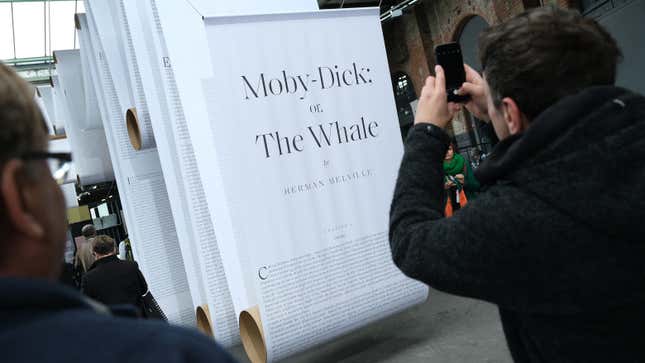Here's Some Inexplicable Book Twitter Drama Involving Moby Dick and a White YA Author's Racist Meltdown
In Depth

It’s the time of year when white YA writers like to engage in vitriolic Twitter wars that expose biases, necessitate hasty apologies, and require an English degree to understand. In this year’s battle, some harmless tweets about Moby Dick being boring ignited a Twitter altercation in which a well-known YA author lost her agent after massively overreacting to an educator who correctly pointed out that canonical texts often mirror the harmful mindsets of the oppressive time periods in which they were written.
This particular fable about letting other people have opinions began on Monday when author and co-founder of the organization We Need Diverse Books, Ellen Oh, began a Twitter thread listing her picks for “Worst Classic Books Ever.” These books should no longer be included on K-12 syllabi, she wrote, “because they legit cause kids to hate reading.” Oh listed books that are likely too advanced and dated for high school curriculum but are often assigned anyway, like Moby Dick, along with “canonical” texts generally considered YA like The Adventures of Huckleberry Finn and The Catcher in the Rye. The thread drew the attention of other educators, many of whom agree that teaching century-old books focused primarily on the lives of white men is likely not the way to foster a love of reading in students who are not white men and were born in the 21st century.
One of those was Lorena Germán, an award-winning educator and facilitator of #DisruptTexts, an organization that advocates for more diverse and inclusive texts in classrooms. Germán noted the age of most of those books and encouraged readers to consider the fact that the racist, sexist, and all-around more oppressive time periods during which they were written shapes their content: “That is why we gotta switch it up. It ain’t just about ‘being old,” Germán explained.
-

-

-

-

-

-

-

-

-

-

-

-

-

-

-

-

-

-

-

-

-

-

-

-

-

-

-

-

-

-

-

-

-

-

-

-

-

-

-

-








































